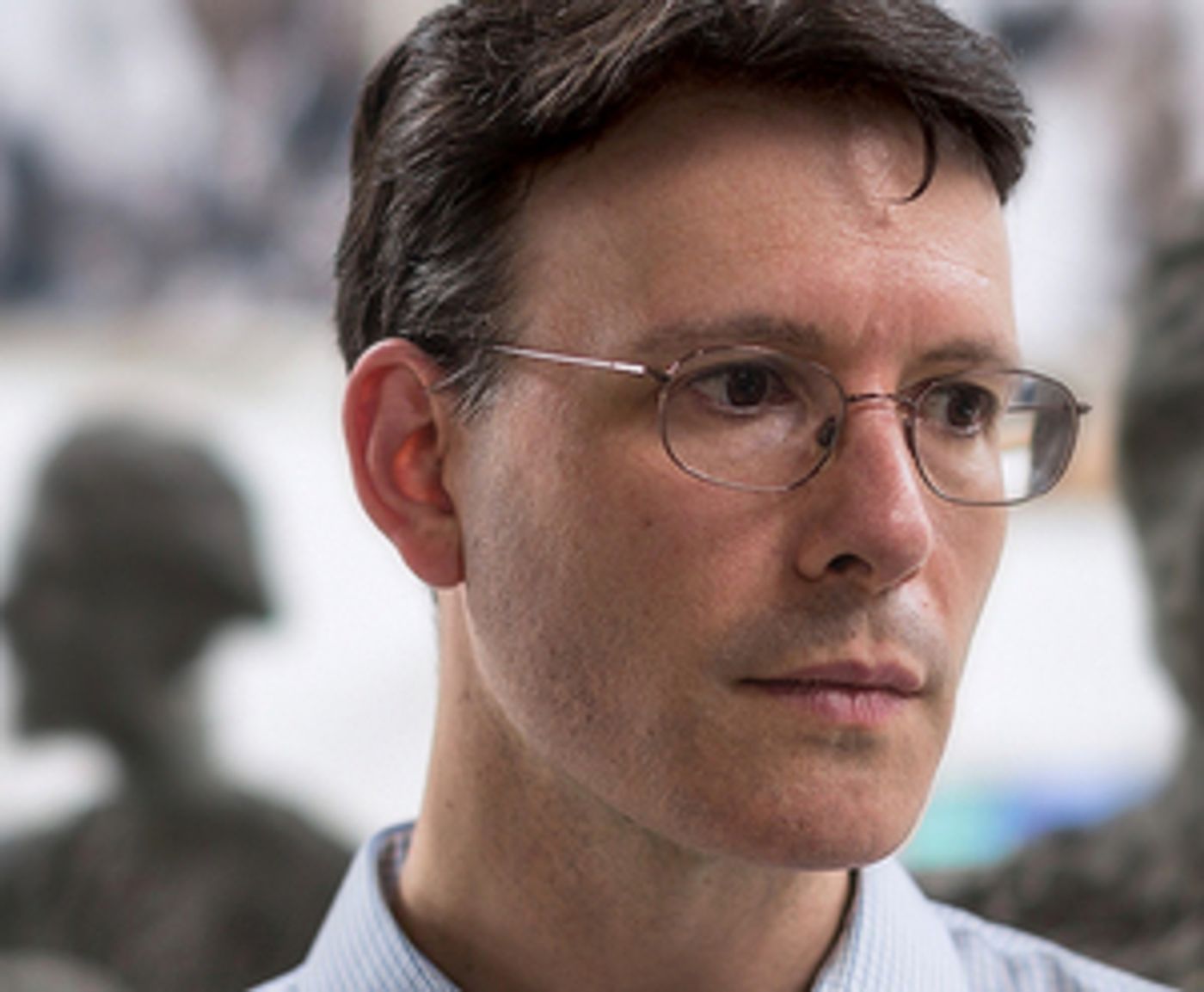SEW ME INTO A SHROUD OF LEAVES Comes to National Sawdust
The performance is set for May 13.

On Saturday, May 13 (9 am - 10:30 pm), National Sawdust presents the North American premiere of Michael Hersch's monumental trilogy sew me into a shroud of leaves (2001 - 2016). Hersch, widely considered to be one of the most gifted composers of his generation, spent fifteen years composing this work, which premiered at the Wien Modern festival in 2019.
The 809-page score, which comprises some ten hours of music, requires extraordinary virtuosity and stamina to perform. Accordingly, Hersch has assembled four exceptional musicians. The first part of the trilogy, The Vanishing Pavilions, will be played by pianist Jason Hardink. The second, Last Autumn, will be performed by cellist Mariel Roberts and the composer's brother, hornist Jamie Hersch. Pianist Jacob Rhodebeck will play the final and longest panel, one day may become menace. The three sections will be separated by one-hour intermissions.
At National Sawdust (80 N. 6th St. in Brooklyn, NY), concertgoers may attend the entire performance for $45, or individual parts of the trilogy for $20. Tickets are available at nationalsawdust.org.
Michael Hersch is known for works that unflinchingly confront the universal experiences of illness and mortality. While they offer no consolation for the finality of death, they are infused with deep compassion for the suffering of human beings caught in these primal and inexorable forces.
Hersch began composing the first part of sew me into a shroud of leaves in the days just after September 11. Not long before, he encountered the poetry of Christopher Middleton (1926 - 2015), with whom he developed a close friendship. Says Hersch, "Middleton was capable of creating unique, at times brutal, landscapes of largely unsentimental utterances which resisted ornament and moved inexorably through time.
"I wanted to get at a kind of essence that I felt in Middleton's words, an essence which felt particularly germane to the moment. Issues relating to violence both externally and, later, internally (illness), would never be far from my work moving forward, even if momentarily paused.
"These themes would become an atmospheric, and at times structural, presence; a kind of musical grappling with their respective parallels and divergences. For much of the past fifteen years, during which I lost a very close friend to cancer and recovered from my own bout with the disease, physical illness and its consequences have been a focus. These experiences particularly informed the second and third parts of sew me into a shroud of leaves."
Hersch's engagement with Middleton's poetry gave rise to specific musical gestures, sonorities, and harmonic interactions. He decided from the outset that these ideas "would appear across the totality of the work, sometimes with little alteration, sometimes radically altered to the point of complete distortion, and most oftentimes appearing with subtle variants."
Each of the trilogy's 153 movements is prefaced by a poetic fragment by Middleton, German poet W. G. Sebald (1944 - 2001), or Canadian poet Marius Kociejowski (b. 1949). These epigraphs are neither spoken nor sung, but are intended to be provided to audiences in printed form.
Before the cycle's premiere in Vienna, its first two panels were performed on their own. Hersch, an impressive pianist in his own right, gave the first performance of The Vanishing Pavilions in Philadelphia in 2006. Wrote David Patrick Stearns in the Philadelphia Inquirer, "The evening felt downright historic... Overtly or covertly, The Vanishing Pavilions is about the destruction of shelter (both in fact and in concept) and life amid the absence of any certainty... And though the music is as deeply troubled as can be, its restless directness also commands listeners not to be paralyzed by existential futility." Hersch recorded The Vanishing Pavilions for Vanguard Classics, which issued a two-disc set in 2007.
Stearns also reviewed the premiere of Last Autumn (2009) in Philadelphia, describing it as "a composite portrait of something too huge and undefinable, glorious and terrible, to be seen in anything more than glimpses... [the work's] emotional riches defy the harmonic limitations of the instruments."
In addition to the Frankfurter Allgemeine Zeitung, the world premiere drew praise from Cynthia Peck in Metropole: "The work seems to mirror the vastness of life and its own chapters, whether measured in years or days or minutes... It was an exceptional, long journey, this concert that began in the night and ended in the same. As the huge room darkened, a weary yet tender poignancy emerged, an effect that one might call spiritual."

Videos

